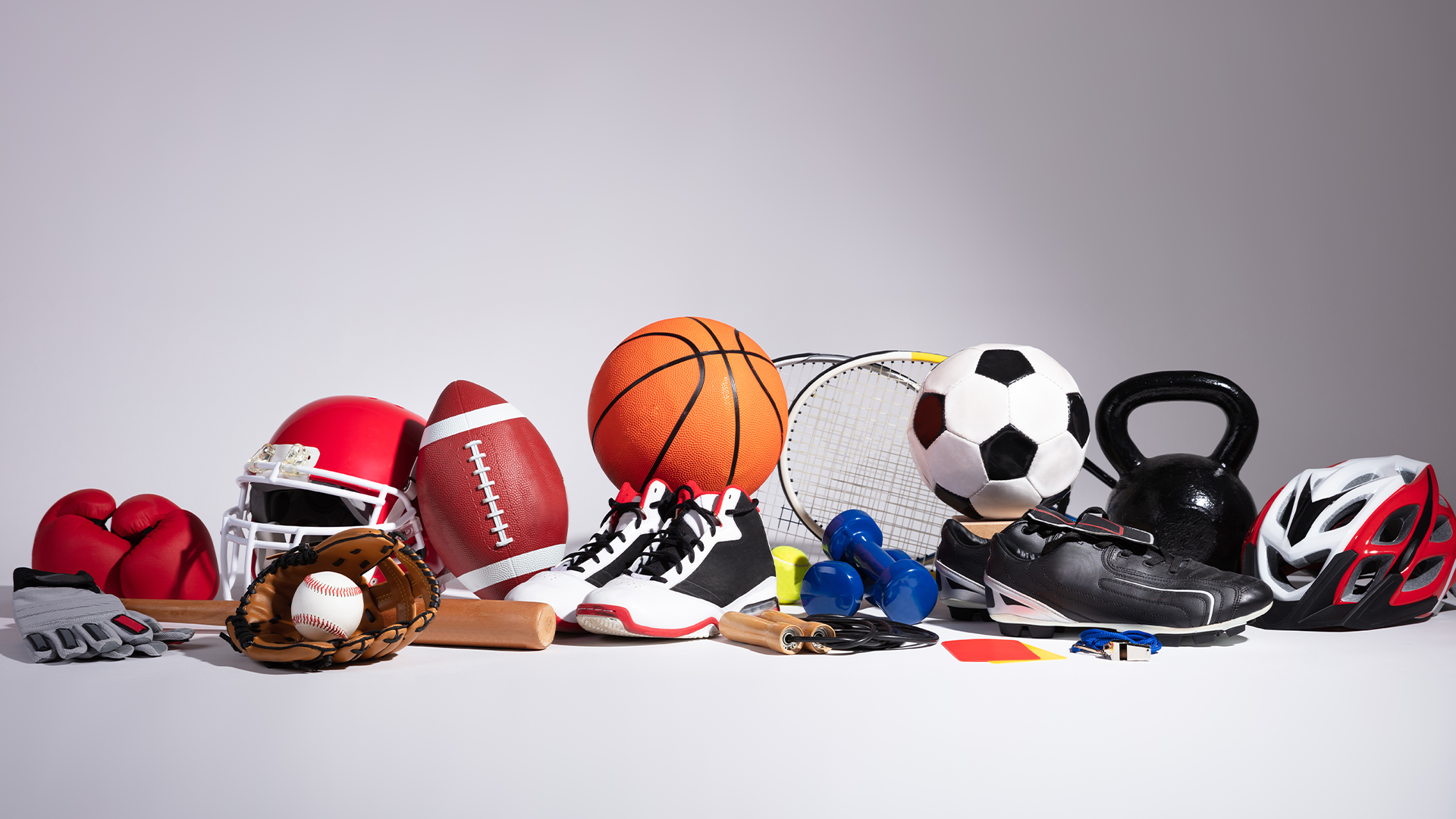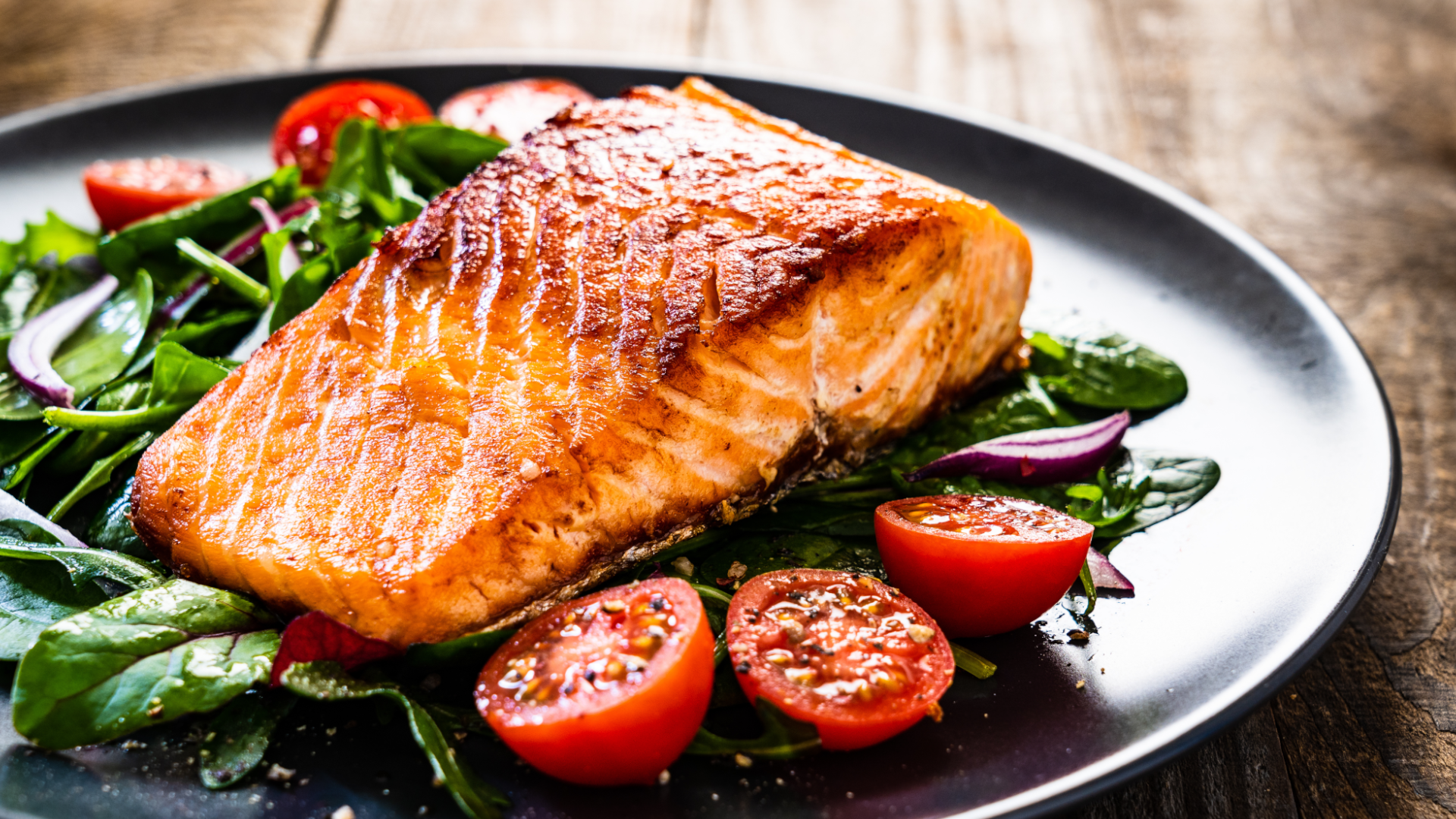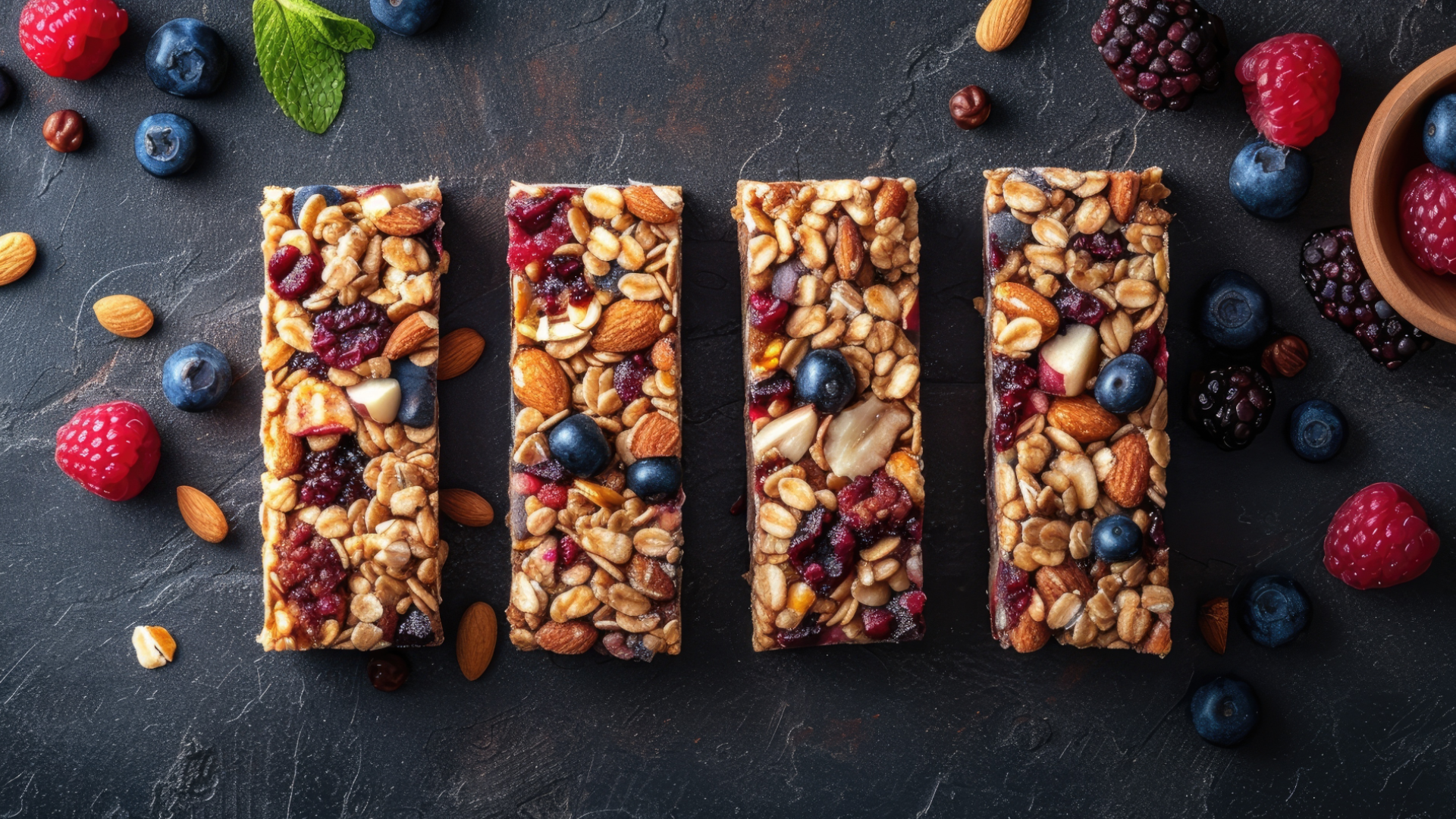No matter what aspect of health and fitness, there will always be some popular beliefs and advice that are untrue, and nutrition is no exception.
In fact, you’re probably familiar with many of the myths in nutrition - it’s home to some of the most widely believed and outrageous falsehoods out there. The internet is rife with misinformation and people telling you what is and isn’t true - it can be overwhelming and confusing to say the least.
If getting fit and building muscle is in your eyesight, then believing these myths could at worst, seriously damage your health and at best, make you fail to meet your fitness goals.
When it comes to your body, it's essential to listen to the experts and current athletes who have been able to find the knowledge that works for them.
To help you cut through the noise and spot truth from fiction, here are some vital sport nutrition facts to help set the record straight and ensure you get the best sports nutrition education possible:
What is Sports Nutrition?
Nutrition is centered around what you eat and put into your body. Regular nutrition focuses on ensuring you get all the right foods, micro-nutrients, and macros to perform well daily and be healthy.
Sports nutrition is similar but more tailored to ensure you can perform well at your chosen sport. No matter what kind of athlete you are, good nutrition is the foundation that determines how well you can ultimately perform.
If you need the proper nutrition for your physical activities, lifestyle and sport, you can find yourself needing more energy, being adequately fuelled, and struggling to recover. All of these can lead to severe health problems and ultimately result in you not being able to reach your full potential in your sport.
Most people's knowledge of nutrition (if any) is focused on how to use it to lose weight rather than on how to fuel their bodies for performance.
Most people who are serious about their sport understand the importance of nutrition and work hard to ensure that what they're eating is right. The issue is that so much misinformation and conflicting knowledge have led to people believing falsehoods and wrong information.
Sports nutrition can improve injury prevention, increase immunity, reduce muscle fatigue, regenerate muscles, increase energy level and improve concentration and attention span.
Believing and following bad, inaccurate advice can adversely affect your overall nutrition and health, which is unsuitable for a sportsperson.
It's best to start separating fact from fiction to elevate your game.
Sports Nutrition Myths Debunked
There are countless myths about sports nutrition, and they are growing by the day.
As an increasing number of uninformed and untrained individuals are given a platform online via social media, these lies and sport nutrition myths can spread like wildfire.
Here's a look at some of the most widely believed myths you should ignore and the sports nutrition advice you should listen to.
Myth 1: You Should Avoid Carbs…
Low-fat and low-carb diets may be all the rage for people that want to lose weight.
This may sound crazy for people trying to be healthy and remain fit their whole life, but simple carbs like sugar aren't inherently bad. In fact, no type of food group should be banned and cut out from your diet entirely; even fats can play a vital role in keeping you fit.
Many people avoid simple carbs because they are considered unhealthy. Still, in moderation and in modest portions at the right time, simple carbs can be a great addition to your overall sports nutrition plan. 
Our body loves carbs. They are easily broken down and provide energy quickly for our muscles. Although complex carbohydrates are overall better for you, you can use simple carbs in certain situations to help boost your performance.
Simple carbs are a great food to eat during or after exercise. As the energy is released quickly, you can help give yourself a boost to help increase your training capacity or give you an extra edge when competing.
They're also perfect for recovery once you're done, as they can help rebalance your blood sugar and glycogen stores, which will often be depleted.
Of course, you’ll want to avoid highly processed carbohydrates, along with other processed foods - but in general, carbohydrates are not bad for you.
Myth 2: Just eat protein to recover
Protein is instrumental in building muscle, recovering from training, and more. But people often focus on adding this to their diets and neglect other equally useful nutritional options.
The truth is that protein will be less effective at building muscle if you're not eating enough carbohydrates. This is because protein needs carbs to be delivered to the muscles. Plus, carbs ensure your body has enough energy to absorb and use the protein.
It's best to eat a ratio of 3:1 carbs to protein.
As a general rule, you want to eat 1g of carbs per Kg of body weight and 2g of protein per Kg of healthy weight if you are looking to build muscle.
To help you achieve this ratio, you can get various supplements and shakes from Crazy Nutrition; this can be especially useful if you are sticking to a calorie deficit and don’t want to eat additional meals.
Myth 3: Avoid Caffeine
It only takes a few seconds of research to see that this myth isn't true. When looking at high-level athletes, you'll find that many of them often use caffeine to help give them an energy boost.
Of course, too much caffeine can cause jitters, headaches and other issues, but using a reasonable amount is fine and can lead to a performance boost. Some of the best ways to use caffeine as an athlete are energy gels and chewables. 
Caffeine can be great for long-distance and high-endurance sportspeople, as it can help reduce how exhausted you feel. Up to 3 mg per KG of body weight 20 minutes before a race's end can help you.
Myth 4: Sports Drinks are healthy
One of the best tricks brands like Lucozade or Gatorade have pulled to make many people, even those involved in fitness, believe that their drinks are essential for high-performance athletes. After all they are marketed as sports drinks, so it’s understandable you would think they are necessary for sports performance.
The truth is that many of these drinks are simply not necessary and are likely to harm your overall nutrition. Many of these drinks contain a lot of sugar, artificial ingredients, and more, and there are better ways of getting a hit of energy.
If you're going to use sports drinks, make sure to only use them for longer workouts, as this is where they have some value, as they'll give you prolonged boots in your glycogen stores.
Myth 5: You should carb-load before a long-distance event
Carb-loading is where you eat more carbs than you usually would before a long-distance event to build up a greater glycogen store. Having more of this gives you more energy, helping you to perform.
The issue with carb-loading is that many people need to do it properly and emphasize too much on the loading part. You shouldn't eat more food before a race. Instead, it would help if you swapped out other food groups for carbs while eating the same volume.
For example, two days before a race, you should swap your protein and fat for carbs. So instead of eating nuts, eat a banana. You should stick to something other than your normal meal plan and add extra carbs, as that can hamper your performance.
Myth 6: Eating fat makes you fat
We've already mentioned it in the first myth, but fat isn't the enemy regarding weight gain. The reputation of fat has taken a beating since low-fat diet trends emerged in the early 00s, but the reality is that we need fat. 
Many healthy fats are vital for a positive diet, and sports people need them more than ever as they can help a lot with endurance.
Of course, the most significant thing with fat is all about portions. Too much fat can lead to it being stored in your body, but having the right amount can help your joints and improve your skin and hair.
Try to get your fats from nuts, seeds, avocados, and oily fish, among other natural foods. These also contain vitamins D and E, which is excellent for athletes.
Myth 7: You need to eat meat to get protein
Protein is most abundant in meat. However, you can still get the protein you need from other sources. This has been a stick used to beat vegans with, but the truth is that you can get plenty of protein from plant life and vegan options.
All you need to worry about if you're looking to get protein from your greens is to keep it varied. This ensures that you get a broad spectrum of amino acids needed for protein synthesis within your body.
Grains and pulses are the best meat-free protein sources, as well as tofu, tempeh and soya. For the best results, if you're looking to boost your recovery, be sure to eat protein with some carbs within 30 minutes of exercising.
Again, it’s good to avoid highly processed foods even if you aren’t eating meat.
Myth 8: Your goal with nutrition is to get slimmer
Sports nutrition is not focused on getting you as thin and slim as possible. In fact, the aim is rarely to lose weight.
Instead, it's focused on ensuring that you're fitter and can create a body that's best suited to the sport you play. It’s all about athleticism, not aesthetics.
Each body type is different from the 'ideal' shape, and proper sports nutrition isn't trying to get you to achieve a certain look. Instead, it's designed to give your body the pieces to maximize your performance as an athlete.
If you tailor your nutrition to focus on just dropping weight, you'll find that you'll lack energy, power, and eventually performance in the long term. If you push yourself too far and start losing muscle mass instead of body fat, you will lose power and speed and not be the best athlete you can be.
You can add aspects to your nutrition to help you lose weight if you need to, but you should also be careful to ensure your calorie deficit isn't too low. If you're not getting enough of what you need, your body will start going into compensatory behaviors, harming your total performance.
Myth 9: You should work out on an empty stomach
There's a recent trend where people opt to work out before eating, known as fasted workouts. This goal is to help promote faster weight loss, but there is no substance to this practice.
Instead, when you work out without eating, you'll struggle to have the energy needed and not perform well, and this can also risk your recovery, as it will take your body longer to get back to a normal state. 
Instead, it's best to eat something light before working out and then top up with simple carbs if you need to.
There is something called training low, where you train without eating carbs and is used to ensure more fat is used for fuel, but it does not result in you losing more body fat.
It needs to be longer than 60 minutes to train low effectively at a 6/10 effort throughout. You also need to eat carbs immediately after and throughout the rest of the day too.
This is an advanced type of training, so it's best to avoid it and ensure you're eating before you work out.
Myth 10: Your diet doesn't matter if you exercise a lot…
Thanks to the other myth debunking, it should be clear by now that the food you eat is vital for overall health and performance, even if you're training well and often.
Many people do think that they can eat whatever they like as long as they put the work in, but the truth is that the food intake will catch up with them sooner or later. You need to think of food as fuel for your workouts instead of viewing your workouts as punishments for your food. They work together to ensure you have the best nutrition and performance as an athlete.
Focus on having a balanced diet when training. Including treats are all fine, and nothing should ever feel off-limit; you just need to have the right amounts of each food group.
The ultimate makeup of your diet will differ depending on your sport, so make sure that the food you eat is tailored to your training.
Myth 11: Everyone should follow a gluten-free diet…
Nowadays, it’s common for a gluten-free diet to be suggested for anyone looking to lose weight or perform in a sport.
And if you have celiac disease or gluten allergies, then yes, you’ll need to follow a gluten-free diet. This means that you cannot eat whole grains or whole-wheat products, which provide excellent nutrition, including essential vitamins and fiber.
Be aware when manufacturers remove gluten because sometimes sugar or refined starch can cause a slight taste and texture change if used.
However, for many people cutting out gluten is not a necessity, and if you don’t have an intolerance will likely be unnecessary for your healthy, performance-driven diet.
Myth 12: Eating healthy is expensive…
Many people think that eatig healthily will cost more than eating low-quality, highly processed and refined foods.
And it’s true that healthy, organic food can be expensive (although not more expensive than constantly eating fast food); however, the pay-off for your health is more than worth it, and there are ways of making it more affordable.
If you are worried about cost, then it’s a good idea to plan your meals and food prep to ensure you get the most from all the ingredients. Use an abundance of season-vegetables and complex carbs to keep the cost down and fill you up without overconsuming on calories.
Plus, introducing supplements, such as protein powder, can help you reach your nutritional goals, fuelling your body without breaking the bank.
How to fuel your body for sports nutrition…
Nutrition is an important aspect of any athlete, and it's always good to take an interest in it to improve your game.
The issue is that you need to listen to the right advice from the right people, as too many spread falsehoods and fake myths.
Here at Crazy Nutrition, we're fanatic about nutrition and have spent years creating and perfecting supplements to help you intake the right foods and nitrates you need.
We have multiple products that can be tailored to all kinds of sportspeople, no matter if you're looking to gain mass, increase your energy before a workout, or sculpt yourself into the perfect athlete.
Check out the Crazy Nutrition online store to find what you need.



